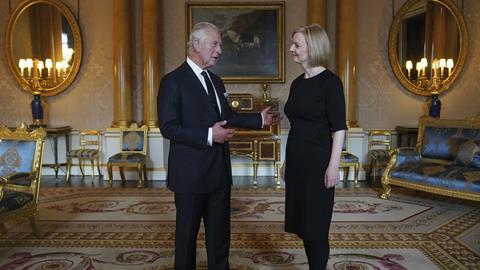Our nation is at a constitutional crossroads. Liz Truss now has a unique opportunity to take the path of principle.

On Wednesday of last week – and doesn’t that seem a long time ago? – she let it be known that her government would not be proceeding with Dominic Raab’s much-criticised Bill of Rights Bill. This was no great surprise. A quick announcement was needed because the bill’s main Commons debate was imminent. Even so, scrapping the bill was pretty much the first decision Truss announced after appointing her cabinet.
The second encouraging sign is the decision by Raab’s successor Brandon Lewis to see the chair of the Criminal Bar Association, Kirsty Brimelow KC. An urgent meeting, originally arranged for this week, has been rescheduled for the day after the late Queen’s funeral. As far as I can see, it will be Lewis’s first meeting with representatives of the legal profession. I hope it indicates that he wants to find a way of resolving the criminal bar’s concerns over legal aid.
According to the Ministry of Justice website, Lewis has only two ministers in the Commons at the moment: Rachel Maclean, the minister of state, and Sarah Dines, a junior minister shared with the Home Office. His junior minister in the House of Lords is Lord Bellamy KC, who chaired the independent review of criminal legal aid. Inexcusably, Bellamy was kept out of legal aid policy by Raab.
Truss was justice secretary herself for just under a year in 2016/17. She is remembered for her failure to speak up for senior judges after the Daily Mail described them as enemies of the people. If the judges had known then how difficult working with Raab was going to be over the past year, they might have treated Truss more generously. But her government now has the opportunity to put matters right by investing in criminal justice and reconsidering its approach to human rights.
'Truss finds herself in an extraordinary constitutional position. She has held office for longer than her Sovereign'
Concerns were expressed that Raab’s abandoned plans would be replaced by something worse from Suella Braverman. While she was a candidate for her party’s leadership, the new home secretary argued that the UK should withdraw from the human rights convention – thereby following Russia out of the Council of Europe.
Fortunately, this is not one of her ministerial responsibilities. Braverman may well introduce further immigration reforms. But any changes to the Human Rights Act remain a matter for the MoJ. I would expect Lewis to come up with a measured package of reforms in the new year. He knows he needs the support of the House of Lords if he is going to get any legislation passed before the next election.
More broadly, Truss finds herself in an extraordinary constitutional position. She has held office for longer than her Sovereign, albeit just two days. Charles, by contrast, has spent a lifetime preparing for his destiny. Such plans as Truss was able to make in the run-up to her appointment have been overtaken by events.
In Westminster Hall on Monday, the King told MPs and peers that he was ‘resolved faithfully to follow’ the ‘precious principles of constitutional government which lie at the heart of our nation’. Decoded, this means he will not interfere.
But if Bagehot was right in 1867, the Sovereign has ‘the right to be consulted, the right to encourage, the right to warn’. Truss should take full advantage of her weekly audiences and discuss her policies with the King.
Her first constitutional challenges will come at the international level. What should the government do if the High Court, in a judgment expected towards the end of next month, declares that the agreement reached by the former home secretary to send asylum-seekers to Rwanda is unlawful? Appeal, no doubt, but should Truss think again?
What should she do if the Supreme Court decides, after a hearing next month, that the Scottish government has no power to initiate an independence referendum? One option would involve moving the goalposts so that a simple majority in any future vote would not suffice. Would that be prudent? Or provocative?
The Northern Ireland Protocol Bill, which Truss herself introduced, is about to start its progress through the Lords. Will this square the circle of Brexit? Or should she now reopen negotiations with the EU?
Truss has an extraordinary opportunity for diplomacy this weekend. There will be a reception for overseas representatives at Buckingham Palace ahead of the funeral and another reception immediately afterwards hosted by the government. Until last week, Truss had been hoping to see president Biden in Washington. Now he is coming to London.
The opportunities are there to be seized. Boris Johnson will be remembered for playing fast and loose with the rule of law. Truss must now put the ship of state on an even keel.
joshua@rozenberg.net
































No comments yet